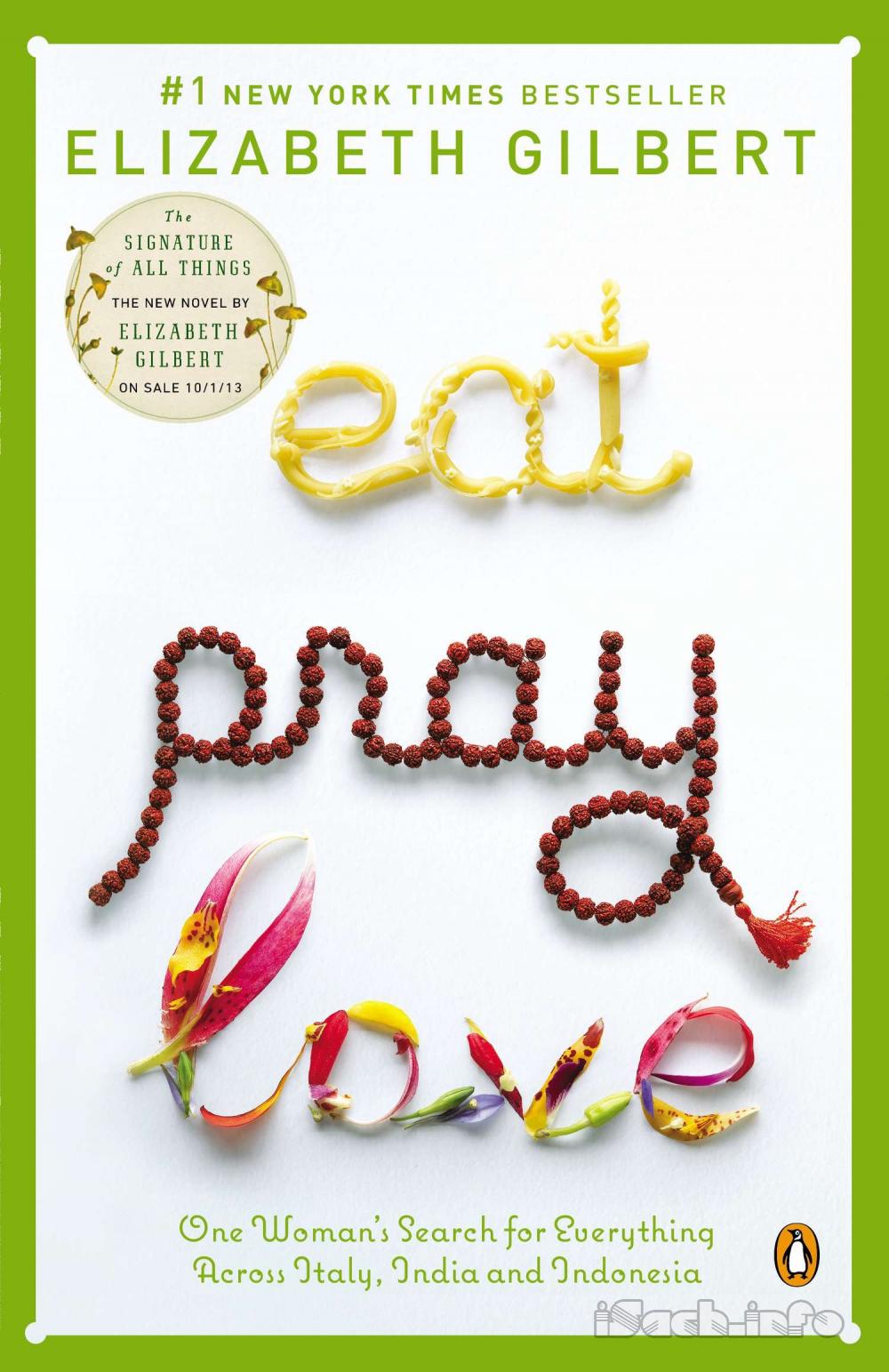Chapter 83
I
have a new friend. His name is Yudhi, which is pronounced “You-Day.” He’s Indonesian, originally from Java. I got to know him because he rented my house to me; he’s working for the Englishwoman who owns the place, looking after her property while she’s away in London for the summer. Yudhi is twenty-seven years old and stocky in build and talks kind of like a southern California surfer. He calls me “man” and “dude” all the time. He’s got a smile that could stop crime, and he’s got a long, complicated life story for somebody so young.He was born in Jakarta; his mother was a housewife, his father an Indonesian fan of Elvis who owned a small air-conditioning and refrigeration business. The family was Christian—an oddity in this part of the world, and Yudhi tells entertaining stories about being mocked by the neighborhood Muslim kids for such shortcomings as “You eat pork!” and “You love Jesus!” Yudhi wasn’t bothered by the teasing; Yudhi, by nature, isn’t bothered by much. His mom, however, didn’t like him hanging around with the Muslim kids, mostly on account of the fact that they were always barefoot, which Yudhi also liked to be, but she thought it was unhygienic, so she gave her son a choice—he could either wear shoes and play outside, or he could stay barefoot and remain indoors. Yudhi doesn’t like wearing shoes, so he spent a big chunk of his childhood and adolescence life in his bedroom, and that’s where he learned how to play the guitar. Barefoot.
The guy has a musical ear like maybe nobody I’ve ever met. He’s beautiful with the guitar, never had lessons but understands melody and harmony like they were the kid sisters he grew up with. He makes these East-West blends of music that combine classical Indonesian lullabies with reggae groove and early-days Stevie Wonder funk—it’s hard to explain, but he should be famous. I never knew anybody who heard Yudhi’s music who didn’t think he should be famous.
Here’s what he always wanted to do most of all—live in America and work in show business. The world’s shared dream. So when Yudhi was still a Javanese teenager, he somehow talked himself into a job (speaking hardly any English yet) on a Carnival Cruise Lines ship, thereby casting himself out of his narrow Jakarta environs and into the big, blue world. The job Yudhi got on the cruise ship was one of those insane jobs for industrious immigrants—living belowdecks, working twelve hours a day, one day off a month, cleaning. His fellow workers were Filipinos and Indonesians. The Indonesians and the Filipinos slept and ate in separate quarters of the boat, never mingling (Muslims vs. Christians, don’t you know), but Yudhi, in typical fashion, befriended everybody and became a kind of emissary between the two groups of Asian laborers. He saw more similarities than differences between these maids and custodians and dishwashers, all of whom were working bottomless hours in order to send a hundred dollars or so a month back to their families at home.
The first time the cruise ship sailed into New York Harbor, Yudhi stayed up all night, perched on the highest deck, watching the city skyline appear over the horizon, heart hammering with excitement. Hours later, he got off the ship in New York and hailed a yellow cab, just like in the movies. When the recent African immigrant driving the taxi asked where he’d like to go, Yudhi said, “Anywhere, man—just drive me around. I want to see everything.” A few months later the ship came to New York City again, and this time Yudhi disembarked for good. His contract was up with the cruise line and he wanted to live in America now.
He ended up in suburban New Jersey, of all places, living for a while with an Indonesian man he’d met on the ship. He got a job in a sandwich shop at the mall—again, ten-to-twelve-hour days of immigrant-style labor, this time working with Mexicans, not Filipinos. He learned better Spanish those first few months than English. In his rare moments of free time, Yudhi would ride the bus into Manhattan and just wander the streets, still so speechlessly infatuated with the city—a town he describes today as “the place which is the most full of love in the entire world.” Somehow (again—that smile) he met up in New York City with a crowd of young musicians from all over the world and he took to playing guitar with them, jamming all night with talented kids from Jamaica, Africa, France, Japan . . . And at one of those gigs, he met Ann—a pretty blonde from Connecticut who played bass. They fell in love. They got married. They found an apartment in Brooklyn and they were surrounded by groovy friends who all went on road trips together down to the Florida Keys. Life was just unbelievably happy. His English was quickly impeccable. He was thinking about going to college.
On September 11, Yudhi watched the towers fall from his rooftop in Brooklyn. Like everyone else he was paralyzed with grief at what had happened—how could somebody inflict such an appalling atrocity on the city that is the most full of love of anywhere in the world? I don’t know how much attention Yudhi was paying when the U.S. Congress subsequently passed the Patriot Act in response to the terrorist threat—legislation which included draconian new immigration laws, many of which were directed against Islamic nations such as Indonesia. One of these provisions demanded that all Indonesian citizens living in America register with the Department of Homeland Security. The telephones started ringing as Yudhi and his young Indonesian immigrant friends tried to figure out what to do—many of them had over-stayed their visas and were afraid that registering would get them deported. On the other hand, they were afraid to not register, thereby behaving like criminals. Presumably the fundamentalist Islamic terrorists roaming around America ignored this registration law, but Yudhi decided that he did want to register. He was married to an American and he wanted to update his immigration status and become a legal citizen. He didn’t want to live in hiding.
He and Ann consulted all kinds of lawyers, but nobody knew how to advise them. Before 9/11 there would have been no problems—Yudhi, now married, could just go to the immigration office, update his visa situation and begin the process of gaining citizenship. But now? Who knew? “The laws haven’t been tested yet,” said the immigration lawyers. “The laws will be tested on you.” So Yudhi and his wife had a meeting with a nice immigration official and shared their story. The couple were told that Yudhi was to come back later that same afternoon, for “a second interview.” They should have been wary then; Yudhi was strictly instructed to return without his wife, without a lawyer, and carrying nothing in his pockets. Hoping for the best, he did return alone and empty-handed to the second interview—and that’s when they arrested him.
They took him to a detention center in Elizabeth, New Jersey, where he stayed for weeks amongst a vast crowd of immigrants, all of whom had recently been arrested under the Homeland Security Act, many of whom had been living and working in America for years, most of whom didn’t speak English. Some had been unable to contact their families upon their arrests. They were invisible in the detention center; nobody knew they existed anymore. It took a near-hysterical Ann days to find out where her husband had been taken. What Yudhi remembers most about the detention center was the dozen coal-black, thin and terrified Nigerian men who had been found on a freight ship inside a steel shipping crate; they had been hiding in that container at the bottom of that ship for almost a month before they were discovered, trying to get to America—or anywhere. They had no idea now where they were. Their eyes were so wide, Yudhi said, it looked like they were still being blinded with spotlights.
After a period of detention, the U.S. government sent my Christian friend Yudhi—now an Islamic terrorist suspect, apparently—back to Indonesia. This was last year. I don’t know if he’s ever going to be allowed anywhere near America again. He and his wife are still trying to figure out what to do with their lives now; their dreams hadn’t called for living out their lives in Indonesia.
Unable to cope with Jakarta’s slums after having lived in the first world, Yudhi came to Bali to see if he could make a living here, though he’s having trouble being accepted into this society because he isn’t Balinese—he’s from Java. And the Balinese don’t like the Javanese one bit, thinking of them all as thieves and beggars. So Yudhi encounters more prejudice here—in his own nation of Indonesia—than he ever did back in New York. He doesn’t know what to do next. Maybe his wife, Ann, will come and join him here. Then again—maybe not. What’s here for her? Their young marriage, conducted now entirely by e-mail, is on the rocks. He’s so out of place here, so disoriented. He’s more of an American than he is anything else; Yudhi and I use the same slang, we talk about our favorite restaurants in New York and we like all the same movies. He comes over to my house in the evenings and I get him beers and he plays me the most amazing songs on his guitar. I wish he were famous. If there was any fairness, he would be so famous by now.
He says, “Dude—why is life all crazy like this?”



 ePub
ePub A4
A4